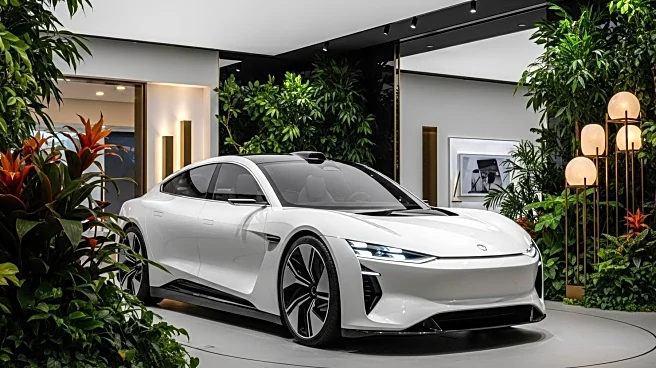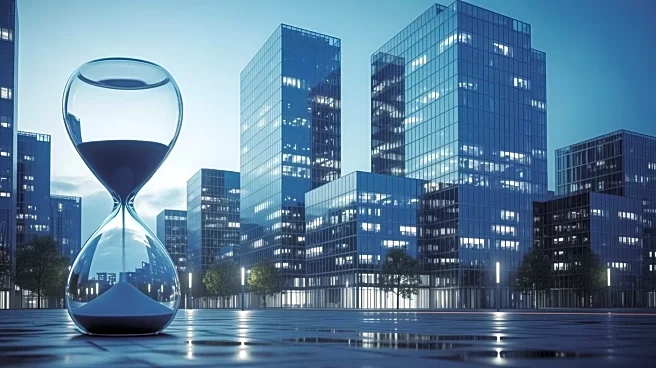What's Happening?
Exotic and ultraluxury automotive brands are increasingly focusing on hybrid and electric vehicle (EV) production. Rolls-Royce's full-electric Spectre has become its bestseller in Europe and the second most popular model globally. This shift reflects a broader trend among high-end car manufacturers to diversify their product lines with more environmentally friendly options. The move is part of a strategic effort to meet growing consumer demand for sustainable transportation solutions and comply with stricter emissions regulations worldwide.
Why It's Important?
The expansion of hybrid and EV offerings by exotic and ultraluxury brands signifies a significant shift in the automotive industry towards sustainability. This trend is likely to influence other sectors, encouraging further investment in green technologies and infrastructure. As these high-end brands adopt more eco-friendly models, it could accelerate the transition to electric vehicles across the market, potentially reducing carbon emissions and promoting environmental conservation. Consumers seeking luxury vehicles now have more options that align with their values on sustainability, which could drive sales and innovation in the industry.
What's Next?
As exotic and ultraluxury brands continue to develop hybrid and EV models, they may face challenges related to production costs and technological advancements. Companies will likely invest in research and development to enhance battery efficiency and vehicle performance. Additionally, collaborations between automakers and tech firms could emerge to address these challenges. The industry may also see increased competition as more brands enter the electric vehicle market, prompting further innovation and potentially leading to more affordable options for consumers.
Beyond the Headlines
The shift towards hybrid and EV models in the luxury automotive sector may have broader implications for global environmental policies. As influential brands adopt sustainable practices, they could set new standards for emissions and energy efficiency, impacting regulations and consumer expectations. This transition might also influence cultural perceptions of luxury, where eco-friendliness becomes a key component of brand prestige and consumer choice.








